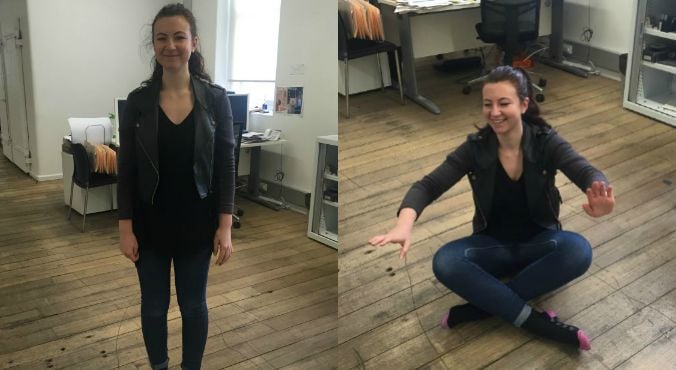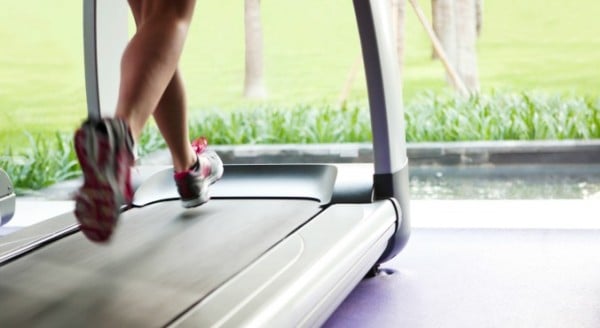
Image: supplied.
Some may call it morbid, but I’m sure I’m not alone in having a secret fascination with predicting the future, particularly when it comes to knowing how long I’m going to live.
While most are quite obviously just for fun (I’m going to live to the year 2120 according to the last Facebook quiz I took), the latest life expectancy test had us all on the floor. Literally.
RELATED: Are juice cleanses really as healthy as they make themselves out to be?
Created by Dr Claudio Gil Araujo, MD, PhD, a Brazilian specialist in exercise and sports medicine, the Sitting Rising Test (SRT) claims to determine your risk of dying over the next five years in just 10 seconds.
The instructions are simple enough.
- Start barefoot on a flat surface (and with clothes that do not restrict movement).
- Try to lower yourself and sit cross-legged without leaning on anything – that’s five points.
- Then try and stand up again without leaning on anything – that’s another five points.
- Take off one point for each time you used a hand or leg to assist yourself, and deduct half a point for every time you wobbled.
So of course the whole office wanted to try it. (Here we are in action. Post continues after gallery.)
The Glow team try the Sitting Rising Test
According to Dr Claudio Gil Arauj, the aim is to get eight or above. If you have bad knees or hips, do not try and do this alone.
RELATED: 4 ways to squeeze exercise into your life when you just “don’t have time”
As we found, it’s a lot harder than it looks.
Designed to easily measure your non-aerobic physical fitness, Dr Gil Arauj says the idea for the test came from observing his older, sedentary patients who were able to pass basic aerobic tests.
“Many of them are able to bike or to run on a treadmill, but if you asked them could you tie your shoes, it’s pretty difficult to do that,” he told USA Today.


